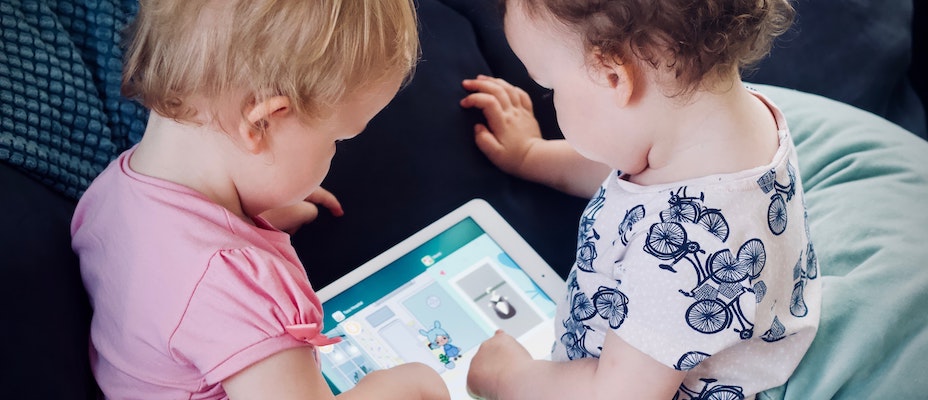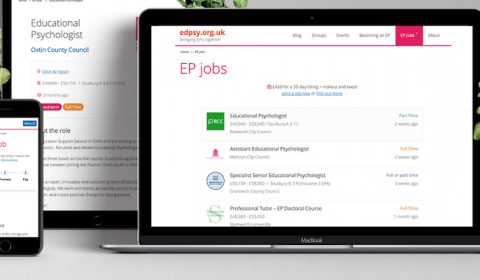How to check whether an “educational app” for preschoolers is truly educational?

As academics from the University of Salford we’ve been working on a project titled “Investigating the educational potential of touchscreen apps for children’s early vocabulary acquisition” in collaboration with Lancaster University.
The research is funded by the Economic and Social Research Council. We have recently developed tools for evaluating the educational potential of children’s apps in a paper published in the Journal of Children and Media
Navigating the world of children’s apps
As many as 80,000 apps claim to be “educational” (Healthy Children, 2018) but the app market is unregulated. Researchers warn that the majority of children’s apps advertised as “educational” in fact lack educational value and are not based on research (Ólafsson, Livingstone, & Haddon, 2013). This means that selecting high-quality apps can be challenging for caregivers and educators. That is why we decided to develop user-friendly tools that can be used to assess whether apps for preschool aged children have the potential to teach them new skills.
Questionnaire for evaluating the educational potential of apps: tool for caregivers and educators
The questionnaire measures 10 features of apps, including:
- Learning goal
- Meaningful learning
- Solving problems
- Feedback.
We argue that to be called educational, apps should have a clear learning goal targeting early skills development, such as teaching sounds, letters, numbers, shapes or teaching about emotions. Learning within an app should also be relevant to real life and offer children problems to solve that promote reasoning, thinking and creativity.
Based on research to date we know that children perform better when they receive meaningful, specific and constructive feedback which helps them learn on a given task or activity (Hirsh-Pasek et al., 2015). Such feedback should be delivered through an audio message, by a social character present on the screen that is animated and “looks” directly at the child.
In order to use the questionnaire, you need to download the app, use it for five minutes (we took screen recordings of our app use but this is not essential for caregivers and educators) and then evaluate it against 10 items. For each item the app can score between 0 and 2 points, which results in max. 20 points in total on the educational potential index.

How we designed our evaluation tools?
We wanted to create two comprehensive tools for evaluating the educational potential of apps aimed at 2-5-year-old children. Specifically, we developed a questionnaire aimed at a wide audience (including caregivers and educators), and coding criteria for measuring the quantity of app features to be used by researchers.
We based our tools on the early years foundation stage, theories of child development, and research on children’s learning from digital media. We first performed a careful analysis of the previously designed evaluation tools. We identified several limitations in the previous tools, such as a long list of criteria, no examples of activities from apps that could help in understanding the criteria, and the use of technical language.
In our tools, we wanted to remedy those limitations. Importantly, we sent our questionnaire for evaluating the educational potential of children’s apps for review to app developers, early years educators and caregivers. We amended the questionnaire following comments from app developers and educators to ensure that our evaluation criteria were well defined. We also made necessary changes following comments from caregivers to ensure that our tool did not include technical language.
In the article published in the Journal of Children and Media we also demonstrated the use of our tools on a wide range of the most popular children’s apps in the app market.
How can the questionnaire help caregivers and educators?
We hope that our questionnaire will be widely used by caregivers and educators selecting high quality apps for preschool aged children. By reading through the items in our questionnaire, caregivers and educators can find out which features of apps promote learning in the most effective way.
We hope that by using our questionnaire, caregivers and educators will become more confident in making informed decisions about apps for their children. This is the first app evaluation tool which has examples of interactions and activities from existing children’s apps included in the evaluation criteria. We hope that those examples will facilitate an in-depth understanding of our evaluation criteria and will make the tool easy to use.
What next?
You can download the questionnaire for evaluating the educational potential of apps here
Once you have used the tool, tell us what you think about it by dropping us an email. You can also follow us on social media to find the latest updates on our research:
- Facebook: @SalfordCogDev
- Twitter: @Salford_CogDev
- Instagram: @salford_child_development_lab
Our research also involved Dr Sarah Norgate who was formerly a Reader in Applied Developmental Psychology at the University of Salford during the research, and Professor Padraic Monaghan, Professor of Cognition at Lancaster University.
References
Healthy Children (2018). Kids & Tech: Tips for Parents in the Digital Age. Available from: https://www.healthychildren.org/English/family-life/Media/Pages/Tips-for-Parents-Digital-Age.aspx
Hirsh-Pasek, K., Zosh, J. M., Golinkoff, R. M., Gray, J. H., Robb, M. B., & Kaufman, J. (2015). Putting education in “educational” apps: Lessons from the science of learning. Psychological Science in the Public Interest, 16(1), 3–34.
Ólafsson, K. , Livingstone, S. , & Haddon, L. (2013). Children’s use of online technologies in Europe: A review of the European evidence base. London, England: EU Kids Online.




